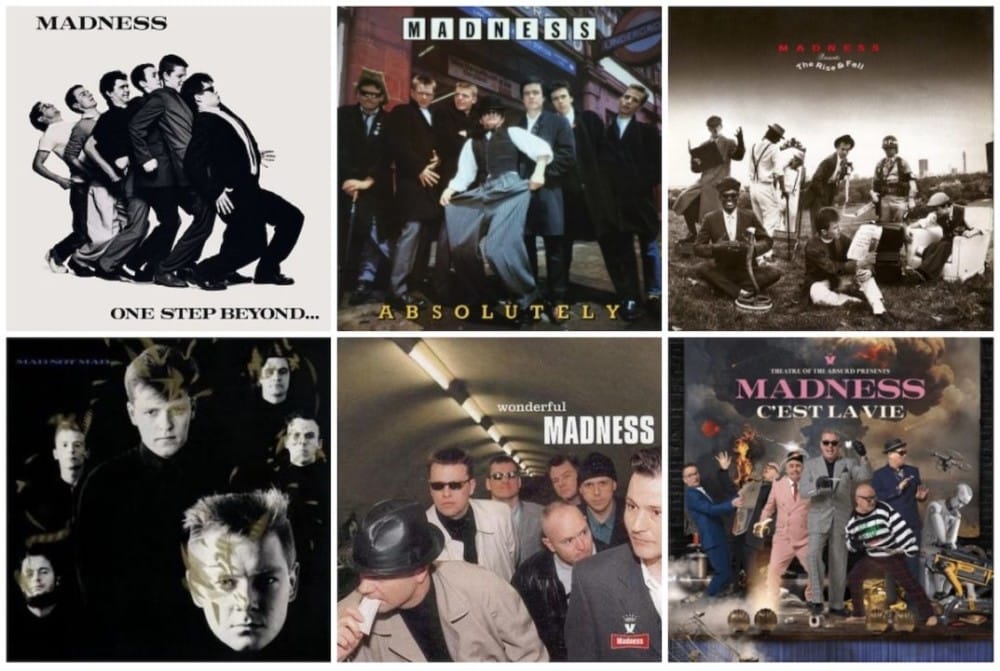
Camden Town’s finest, Madness, helped define the early 80s with their distinctly nutty take on the 2-Tone sound before expanding their musical vision with aplomb for a triumphant second wind
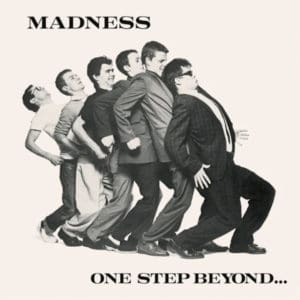
One Step Beyond (1979)
One could say that the chaos of the Madness songs on their debut album reflected the chaos of their formation. Originally performing under the guise of the North London Invaders in 1976, the band went through multiple line-up changes over the following three years: both trumpeter Cathal ‘Chas Smash’ Smyth and saxophonist Lee Thompson temporarily left after arguments with keyboardist Mike Barson, while frontman Graham ‘Suggs’ McPherson was briefly kicked out for neglecting his duties in favour of following his beloved Chelsea.
But eventually, the core line-up, which also includes guitarist Chris Foreman, bass player Mark Bedford and drummer Dan Woodgate, managed to settle their differences long enough to hit London’s Eden Studios. Not that One Step Beyond… took much time to record. Produced by Clive Langer and Alan Winstanley, both an essential part of the Madness story themselves, its 15 tracks were done and dusted within the space of just 10 days.
The Nutty Boys
This sense of urgency and pure energy is palpable throughout an astonishingly ambitious LP which incorporated various homegrown cultural traditions (music hall, vaudeville, and the great British seaside), playful character sketches and the sounds of the West Indies to create a genuine musical funhouse. The latter, of course, is most prevalent on the title track originally recorded by Prince Buster, the Jamaican ska legend who inspired Madness’ name as well as their debut single The Prince – and surely 1980’s least obvious Top 10, Night Boat To Cairo (“miles of introduction… no chorus,” Suggs admitted in Madness: One Step Beyond).
But while the album always has one foot in the 2-Tone revival, which also birthed The Specials (whose eponymous debut was also released on the same day) and Selecter, it isn’t afraid to dip the other in all kinds of waters. In The Middle Of The Night is a Chas and Dave-esque bar-room boogie about the exploits of a suburban underwear thief. There are classic rock’n’roll throwbacks (Rockin’ In A¢Ú), jangle-pop ditties (Bed And Breakfast Man) and singalongs heavily indebted to musical hero Ian Dury (My Girl).
Even Tchaikovsky gets the Nutty Boys treatment on an audacious reworking of Swan Lake. And, aside from the politically incorrect Mummy’s Boy, the group’s sheer exuberance of youth has aged remarkably well, too.
“Hey you, don’t watch that, watch this,” toasts the opening UK Top 10 hit that instantly put Madness on the map. No self-respecting ska-head of 1979 needed to be told twice.
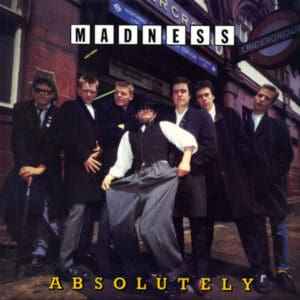
Absolutely (1980)
As for Madness, they’re still the Blues Brothers – though it’s unlikely anyone will give them $30 million to waste on a third-rate movie,” wrote Rolling Stone’s Greil Marcus of the band’s second LP in a one-star review which also took aim at fellow 2-Tone revivalists The Specials. Of course, what was intended to be a derogatory remark could just as easily be interpreted as a compliment. Like the Nutty Boys, John Belushi and Dan Aykroyd were sharp-suited masters of showmanship after all.
It’s not hard to see why such a distinctly British record – its cover depicts the band standing in front of Camden’s Chalk Farm tube station – didn’t translate well across the pond. Offering an alternative to the posh boy antics of Pink Floyd’s Another Brick In The Wall, irresistible lead single Baggy Trousers finds Suggs reminiscing about the rougher and readier comprehensive experience. On The Beat Pete is a slice-of-life tale about a local community bobby inspired by BBC police procedural Dixon Of Dock Green. While closer The Return Of The Los Palmas 7 is essentially a ballroom dance instrumental, which came equipped with a promo video filmed in a greasy spoon.
Encouraging Progression
And let’s not forget how E.R.N.I.E. grounds its protagonist’s eternal optimism in the world of premium bonds (“The future’s looking not so bleak/ A thousand winners every week”). Madness could never be accused of pandering to the States. Their homeland, on the other hand, lapped it up, with the record matching the No.2 peak of its predecessor and doubling their tally of Top 10 hits to six. Such was their popularity that a docudrama charting their early days – sharing the same name as album track Take It Or Leave It – made it to cinemas.
Named after one of their tour manager and sound man Tony Duffield’s catchphrases, Absolutely also explored universal themes, from the devastating effects of gentrification (Disappear)and relationship woes (In The Rain, You Said) to the paranoia of walking home in the dark (Shadow Of Fear). Then there’s Embarrassment – perhaps the first time that Madness could be described as mature – where Thompson drew upon the real-life prejudice his teenage sister faced on falling pregnant with a man of colour. Although hardly a giant leap forward, this was absolutely an encouraging musical progression.
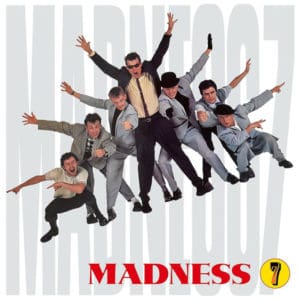
7 (1981)
Madness’ confusingly titled third LP was cut in the Bahamian tax haven of Nassau, apparently based on the advice of their accountants rather than any desire to further soak up Caribbean culture. That perhaps explains why, despite emerging from warmer climes, 7 is more likely to conjure visions of a grim industrial estate than a sun-soaked beach. However, the album’s co-producer Alan Winstanley states in A Guided Tour Of Madness that much of the LP was re-recorded in London when they returned from their tropical trip.
This is an album which starts with the cheery tale of a man whose daily grind sends him to an early grave – Cardiac Arrest was considered so depressing it incurred the wrath of Radio 1. The aptly titled lead single Grey Day, a track which stems from their time as The North London Invaders, also pontificates on the futility of the 9-to-5 life. The disturbing Tomorrow’s Dream adopts the viewpoint of a monkey resigned to his fate in an animal laboratory (“You’ll burn my body quietly set free/ And I’ll cry for you as I sway from my tree”).
Concluding Chapter One
Even the songs that start optimistically end up drenched in despair. On Mrs. Hutchinson, the titular character is essentially given the all-clear by her doctor, only for her son to be told her prognosis is bleak (“It’s my duty to speak/ Your mother will not last the week”). And while closer Day On The Town initially resembles a cheeky ditty for the London tourist board, painting an idyllic picture of ice creams in the park in a manner evoking the album’s dominant musical influence The Kinks, it ends with a reference to the capital’s fondness for riots.
Instrumental The Opium Eaters – whose buzzing crickets offer a rare sign of the LP’s inception – lightens the mood, as does the ABBA-meets-spaghetti western of Shut Up and the unashamedly nonsensical Benny Bullfrog. But 7 is mostly the sound of a band starting to distance themselves from their nuttier persona.
Released in April 1982, the group’s first greatest hits album Complete Madness, which featured the sublime cover of Labi Siffre’s It Must Be Love and spawned their sole No.1 single House Of Fun, further helped close their first chapter.
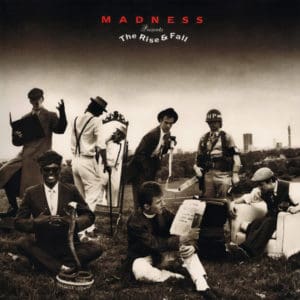
The Rise & Fall (1982)
“It was the first album we made that was an album,” Suggs said of his band’s fourth studio LP, The Rise & Fall. Drawing from New Wave, music hall and orchestral pop as much as ska, rocksteady and reggae, the experimental affair immediately dismissed the notion that Madness were nothing but a great singles act.
The Rise & Fall began as a concept record about childhood nostalgia, and one with Trevor Horn at the helm. But it soon blossomed into something much more thematically ambitious,while after meeting with the band, the super-producer acknowledged they didn’t need him. That proved to be the case on an album that not only birthed the band’s signature hit – the Ivor Novello-winning, jukebox musical-spawning Our House even charted in the States – but was also acclaimed as the 2-Tone revival’s answer to Sgt. Pepper.
The tale of a lunatic asylum escapee, Mr. Speaker (Gets The Word) remains one of the group’s finest comedic vignettes. Blue Skinned Beast – a scathing riposte to Thatcher’s involvement in the Falklands War –proved Madness could get political, while wistful gems Primrose Hill and That Face are about the issues of ageing.
Ignore the unfortunate cod-Indian accent that appears on New Delhi and this could well be their magnum opus.
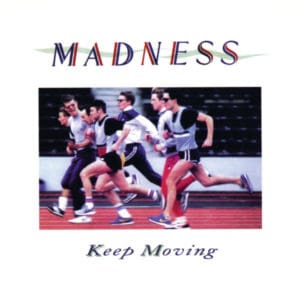
Keep Moving (1984)
In contrast to its predecessor, Keep Moving isn’t held in particularly high regard by the band themselves, with Suggs arguing they’d run out of ideas and Barson – who briefly left to be replaced by journeyman Paul Carrack for its accompanying tour – claiming that it sounds incomplete. However, one could argue that the pair are being a little too self-critical.
Inviting vocal trio Afrodiziak, brass section The TKO Horns and New Wave duo General Public (aka Dave Wakeling and Ranking Roger) into their nutty universe, Madness’ Stiff Records swansong continued to push their sound into unchartered territory. The sophistipop of One Better Day could easily have slotted onto Sade’s Diamond Life, released a few months later. Waltz Into Mischief anticipated the sea shanty revival by a good three decades, while the eponymous opener has echoes of ABC’s The Lexicon Of Love, perhaps a sign of how The Rise & Fall may have sounded had Trevor Horn been on board.
Leftfield Pop
Keep Moving also serves up one of Madness’ greatest singles, even if it did unfathomably break their streak of six consecutive UK Top 10 hits. Fronted by the Bowie-esque vocals of Smyth, Michael Caine is an inspired piece of leftfield pop in which the titular actor – essentially reprising his secret agent in The Ipcress File – repeatedly reminds everyone of his famous name.
Keep Moving is a much brighter listen, too, although as with many of Madness’ sunnier offerings, there’s an underlying darkness. Time For Tea is the harrowing tale of a glue-sniffingschoolboy whose summer holiday escapades take a tragic turn, while the similarly jaunty closer Give Me A Reason depicts a relationship from the perspective of a domestic abuser (“I am the master of this house/ Don’t try to run away”).
Let’s not forget Keep Moving is still the band’s highest-charting album on the other side of the Atlantic, albeit at a remarkably lowly No.109, and even earned rave reviews from previous detractors Rolling Stone.
Still, amid Barson’s first but not last departure, and their proposed sitcom with Ben Elton getting stuck in development hell, it represents the era where the wheels first showed signs of falling off.
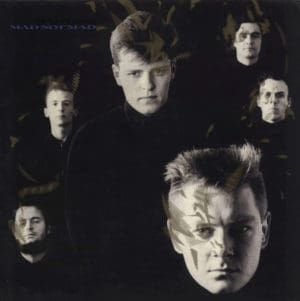
Mad Not Mad (1985)
We must hurry now, time is closing in/ And I’m getting no younger in fact/ Five years closer to my pension scheme.” The opening track on their sixth LP, I’ll Compete suggested Madness knew that they were becoming more susceptible to the fickle nature of the music industry. They were right to be concerned. Mad Not Mad was their first album to miss the UK Top 10, spawned two singles (Uncle Sam and The Sweetest Girl) that failed to crack the UK Top 20 and sold fewer copies than anything that had gone before. Could the absent Mike Barson have been their secret weapon all along?
Regular cohorts Langer and Winstanley certainly seemed unsure about how to adapt to the new pop landscape. The majority of its 10 tracks are clinically immersed in the kind of mid-80s-tastic synths and programmed beats which later prompted Foreman to declaring with Uncut that Mad Not Mad was the most dated-sounding album of their career thus far. Their limp cover version of The Sweetest Girl, for example, sounds staler than the Scritti Politti original released four years earlier.
End Of An Era?
However, Madness’ first LP through their own Zarjazz record label still boasts plenty of fine songwriting. The surprisingly seductive bossa nova of lead single Yesterday’s Men is a wistful meditation on mortality (“Because when you’re told to start how far can you go?/ When your race is run and you already know”), a theme they would delve deeper into the further they developed into elder statesman.
Uncle Sam combines nursery rhyme melodies and calypso beats with – as made more explicit by its World War II-themed promo video – a satirical look at American imperialism. And Burning The Boats sees the band further sharpen their political daggers on an ever-timely faux-Motown number about the Tories’ fondness for privatisation (“The ministry of co-operation/ Are washed and hanging on the line/ There’s a million burning questions/ To set the Thames alight”).
Mad Not Mad, therefore, doesn’t quite deserve the “polished turd” label later given by Suggs during a Radio 1 interview. But there’s a general air of malaise surrounding the record (and indeed one-off farewell single (Waiting For) The Ghost Train) which would prove to be the original incarnation of Madness’ last for a good 14 years.
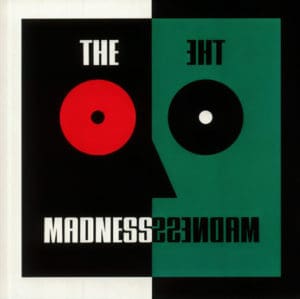
The Madness (1988)
Citing the age-old reason of creative differences, Madness splintered in 1986, with Suggs, Thompson, Foreman and Smyth deciding to form an offshoot that turned out to be as unimaginative as their name.
The Madness, who it is believed produced their eponymous sole album under the pseudonym of The Three Eyes, occasionally showed flashes of inspiration. A portrait of a bride-to-be planning to flee her arranged marriage, I Pronounce You is one of their more convincing detours into Middle Eastern territory, while closer Gabriel’s Horn is an art-pop epic that combines industrial percussion with pounding piano reminiscent of Talk Talk’s heyday.
Had the rest of the album committed to such musical adventurism, then it would no doubt have peaked higher than No.65.
Instead, the quartet – whose vocal duties were shared among Suggs and Smyth – largely plundered a watered-down version of everything that made the real deal so compelling, highlighting how invaluable Winstanley and Langer were. Even appearances from various members of The Attractions, UB40 and The Specials struggle to inject much life into tunes such as In Wonder and opener Nail Down The Days, with the latter’s tinny brass synths seemingly borrowed from an ITV quiz show. Undeniably the group’s creative nadir.
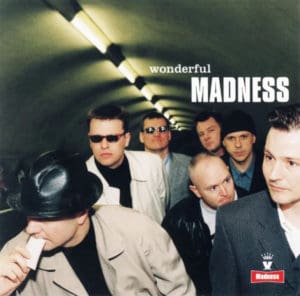
Wonderful (1999)
After Blondie’s Maria reached UK No.1 in February 1999, another blast from the 80s unexpectedly staged a triumphant comeback when Madness revealed their first album to feature the band’s classic line-up in 15 years.
Of course, thanks to the second chart-topping hits retrospective Divine Madness, a series of record-breaking Finsbury Park Madstock! shows and Suggs becoming an unlikely Saturday night fixture on Channel 5’s guilty pleasure karaoke show Night Fever, it never really felt like Madness had truly gone away.
Still, with American acts like The Mighty Mighty Bosstones and No Doubt bringing ska back to the charts, the turn of the century seemed like the perfect time to further remind everyone of their obvious British inspiration. Occasionally, Wonderful wanders a little too far down memory lane, with the cheeky-chappy closer No Money essentially a retread of Our House, while ode to loneliness 4am first appeared on Suggs’ solo debut four years earlier.
Triumphant Comeback
But, for the most part, the band manage to revive their Nutty Boy spirit without falling into the trap of lazy nostalgia. Possibly the jauntiest ditty about alcoholism, Lovestruck proved Madness hadn’t lost their ability to pen an infectious Top 10 in the intervening years. Their James Bond treatment of The Ink Spots’ If I Didn’t Care and the driving chamber pop of Elysiumshowed they still had a few new tricks up their sleeve, too.
Wonderful is perhaps most notable for the band’s dream collaboration with Ian Dury. Having admitted to aping him through parts of their early career, they recruited the real thing on album standout Drip Fed Fred. The rallying cry for a kneecapped East End gangster (“Peace shall not prevail in Purley, came the stark warning today/ From his hospital bed Drip-Fed Fred vowed he was here to stay”) was the last song that Dury recorded before his death in March 2000, a fitting epitaph for his irrepressible Cockney charm.
“So most of the conversation revolves around/ Things that happened 20 years ago,” Suggs sings on the self-referential SaturdayNight Sunday Morning. Wonderful gave everyone something new to wax lyrical about.
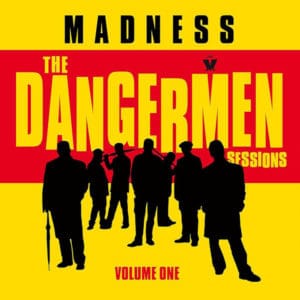
The Dangermen Sessions Volume One (2005)
Madness truly brought their career full circle with their eighth studio album, throwing things back to the covers they first began performing as The North London Invaders in the mid-70s. The Dangermen Sessions Volume One is essentially Madness’ answer to UB40’s Labour Of Love, although we don’t remember the Campbell brothers pretending to be a fictional outfit from Havana staging a comeback 35 years in the making.
Adopting ridiculous pseudonyms such as Professor Psykoticus, Jimmy Oooh and Unnamed (each character also came equipped with their own elaborate backstory), the band pay tribute to various likely suspects (Prince Buster’s Girl Why Don’t You, Lord Melody’s Shame And Scandal, Desmond Dekker And The Aces’ Israelites), with producers such as Steve Dub, Segs and Dennis Bovell providing a further level of authenticity.
But it’s their rocksteady spins on The Supremes’ You Keep Me Hanging On and The Kinks’ Lola, alongside the sole original composition This Is Where, that provide the most intrigue. It’s all perfectly serviceable, but you get the feeling the band had more fun making it than even the most ardent Madness fans had listening to it. The fact that a second session has yet to surface speaks volumes.
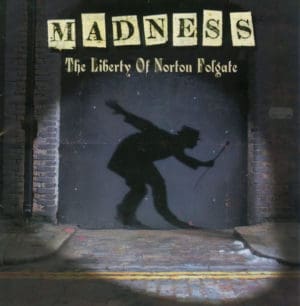
The Liberty Of Norton Folgate (2009)
Coinciding with the 30th anniversary of their official formation, Madness’ most acclaimed album was named after an East London area which up until the turn of the 20th century was governed by St. Paul’s Cathedral. It’s little surprise, therefore, to learn that The Liberty Of Norton Folgate doubles up as a love letter to their hometown, with some gushing critics deeming it as culturally worthy as everything from EastEnders to Ealing Studios.
Opening track proper We Are London couldn’t make the general theme any clearer, guiding us through the version of the city (“Down to Chinatown for duck and rice/ Along Old Compton Street, the boys are nice”) the band had called home for roughly five decades. NW5 is a love song whose origin story, as its title suggests, began in their home postcode of Kentish Town, while Idiot Child is another masterful vignette about a North West London kid consigned to a life of crime by the prejudices of the educational system. Clerkenwell Polkais a crash course history lesson which puts an Islington spin on the Bohemian courtship dance.
Love Letter To London
But it’s the closing title track which best encapsulates the group’s fascination with The Big Smoke. Clocking in at over the 10-minute mark, the mini-suite veers from drinking song to dancehall while simultaneously celebrating the area’s rich history in such a poetic manner you half expect to see Peter Ackroyd’s name on the credits (“The Welsh and Irish Wagtails – mothers of midnight/ The music hall carousel is spilling out into bonfire light”).
The band’s first fully committed concept album isn’t always so blatantly London-centric. In fact, on Africa – sadly not a cover of the Toto classic – Smyth even dreams about leaving Holloway for the burning plains of the titular continent. And Sugar And Spice is a gorgeously bittersweet Squeeze-esque serenade relatable to anyone, no matter if they’ve never even stepped foot inside the capital.
But understandably, it’s the songs where their hometown pride shines through which prove to be most compelling. One could argue that The Liberty Of Norton Folgate is where Madness surpassed The Jam, Blur and even their most obvious musical inspiration, The Kinks, as the quintessential London band.
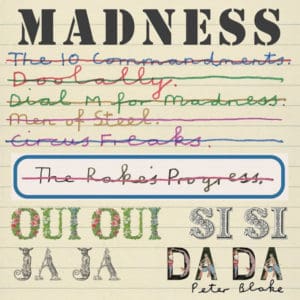
Oui Oui, Si Si, Ja Ja Da Da (2012)
Having performed Our House at both the London Olympics’ closing ceremony and the Queen’s Diamond Jubilee Concert (on Buckingham Palace’s rooftop à la Brian May to boot), Suggs and Co made their return – minus Mark Bedford – to remind the general public that they aren’t always interested in trading on former glories. Well, mostly.
The playful Northern Soul of My Girl 2 is a belated follow-up to their 1979 second hit which initially hints things have turned sour before revealing that it’s (phew) just a lover’s tiff. But elsewhere, Oui Oui, Si Si, Ja Ja, Da Da offers plenty of new ideas, from the mariachi-tinged tale of regret La Luna to the ghostly dub of closing eulogy Death Of A Rude Boy. Never Knew Your Name, in which Suggs pines over the one that got away, even sees the band tiptoeing onto the disco dancefloor.
Langer and Winstanley’s noses may have been put out of joint – Stephen Street (The Smiths) and Owen Morris (Oasis) took on the bulk of production duties – but Madness’ 10th album was worthy of a yes in any language.
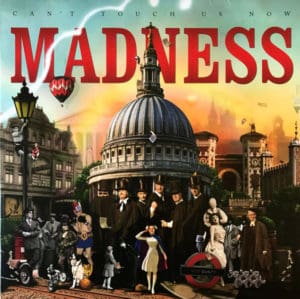
Can’t Touch Us Now (2016)
Madness appeared to deal with the abrupt departure of Smash in 2014 by conjuring up a plethora of similarly larger-than-life, if morally questionable, characters for their most narrative-driven LP yet. Mr. Apples centres on a sanctimonious pillar of the community who fails to practise what he preaches. Pam The Hawk is based on a toothless tramp known for her addiction to fruit machines and machine-gun laugh. And Herbert is an overzealous ex-rugby prop forward who ends up chasing his prospective son-in-law around with a shotgun.
However, the most powerful character study here, Blackbird, is firmly grounded in reality, namely the friendly conversation that Suggs had with Amy Winehouse just days before her untimely death (“Guitar over one shoulder, swirling swagger in her stride/ In a well-appointed pencil skirt, that maybe, just maybe 18 inches wide”). Smash’s absence may have inspired the band to further embrace their roots, with the bouncy ska of Mumbo Jumbo and the title track evoking the first time they really did seem untouchable.
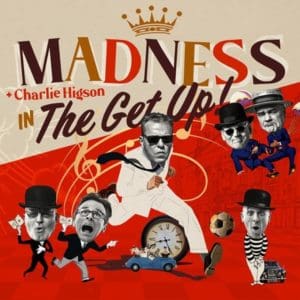
The Get Up! (2022)
A true curiosity in the Nutty Boys’ back catalogue, 2022’s The Get Up! is the recording of the live online experience – part-concert, part-comedy roast, part-vaudeville show – that Madness served up to bored fans during the latter stages of the 2021 Covid lockdown.
Presided over by The Fast Show’s Charlie Higson (as compère Victor Marley), the audio version inevitably cannot compare with experiencing the whole shebang as it was originally intended: in fact, the tendency to interrupt their greatest hits with spoken-word non-sequiturs means The Get Up! is an often-frustrating listen.
True diehards – surely the record’s only demographic – will have no doubt heard the tales from yesteryear countless times before, too. And the lack of an audience within the cavernous London Palladium means that even the funniest quips fall a little flat. Still, the three tasters of the band’s forthcoming studio effort would – at the time anyway – have compensated for all of the familiarity.
Likewise, the inspired routines in which Fine Young Cannibals’ Roland Gift and The Modfather himself, Paul Weller, apply to replace Suggs with their renditions of Concrete And Clayand The Harder They Come respectively. But on the whole, The Get Up! is a prime example of ‘you had to be there’.
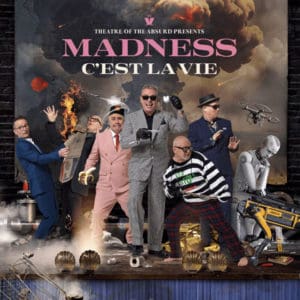
Theatre Of The Absurd Presents C’est La Vie (2023)
Thirteen proved to be a lucky number for Madness when Theatre Of The Absurd Presents C’est La Vie became their first studio effort to reach the No.1 spot, a long overdue achievement for a band who’d been part of the pop fabric for more than 40 years.
Although recorded in a Cricklewood lock-up rather than one of London’s most historic venues, the milestone record has much in common with its live predecessor. As its title implies, it’s a concept album rooted in the tradition of music hall. With British comedic talent and long-time fan Martin Freeman as compère, the album is self-described in Rolling Stone as “the perfect antidote to the chaos of the past few years”, another attempt to lift the spirits of a public deflated and demoralised by the pandemic.
Lucky For Some
Co-produced by Matt Glasbey, Theatre Of The Absurd still makes several references to the latter. It doesn’t take a genius to work out the subject matter of the amusingly titled Lockdown And Frack Off or the pleading Set Me Free (Let Me Be), while the Latin-tinged Run For Your Life addresses the conspiracy theory culture that blossomed with the new age of misinformation (“Take away your DNA/ Learn to live another way”).
But elsewhere, the sextet want us all to forget about the madness of the 2020s by embracing the madness of the past. The Law According To Dr. Kippah takes things back to 1976 with a coming-of-age tale which sounds like Vincent Price covering Visage.
Meanwhile, the inspired closer In My Street, which features strings from composer David Arnold, returns us to the Camden neighbourhood of Our House which sadly appears to have fallen into a state of disrepair (“There’s Turkish drug dealers/ An Irish halfway house/ There’s 10 full black bin bags / Blowing ’round the gaff”).
Ultimately, Theatre Of The Absurd works, and fully deserves its chart-topping status, by fully adhering to the group’s self-imposed principle: ‘Let Madness Be Madness.’
For more Madness click here
Read More: Essential Guide – The Best Of 2-Tone
The post Album By Album – Madness appeared first on Classic Pop Magazine.
